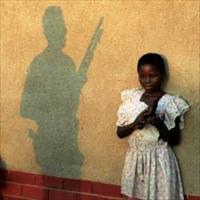ERITREA: US report decries human rights violations

The Eritrean government's human rights record remained poor last year and the authorities continued to commit numerous serious abuses, a report by the US Bureau of Democracy, Human Rights and Labour, said.
Eritrea, however, has dismissed the report. A Foreign Ministry statement said it was "politically motivated and replete, as has indeed been the case in the previous years, with unsubstantiated rumours, innuendo, exaggerations and sheer fabrications".
According to the 11 March report, abuses that occurred in 2007 included the curtailment of citizens' rights to change their government through a democratic process; unlawful killings by security forces, and torture and the beating of prisoners, sometimes resulting in death.
Arrest and torture of national service evaders - some of whom reportedly died of abuses while in detention - harsh and life-threatening prison conditions, were also reported.
Other abuses included arbitrary arrest and detention - including of family members of national service evaders - the executive’s interference in the judiciary and the use of a special court system to limit due process; infringement of privacy rights, and the rounding up of young men and women for national service.
Arrested in 2001, fate unknown
"The whereabouts of 11 senior [officials] and National Assembly members and several journalists and employees of diplomatic missions arrested by the government in 2001 remained unknown," the report said.
"There were unconfirmed reports that one of the 11 had died in detention in previous years and that the rest were being held in solitary confinement. There were also unconfirmed reports that a journalist, Fessahaye "Joshua" Yohannes, held since 2001, had died in detention from unknown causes."
It cited severe restrictions of basic civil liberties, including press freedom, the freedom of speech, assembly, association and religion, particularly for religious groups not approved by the government; restriction of freedom of movement and travel for diplomats, humanitarian and development agency personnel, and the UN Mission to Eritrea and Ethiopia; and restriction of non-governmental organisation (NGO) activities.
"There was societal abuse and discrimination against women; widespread practice of female genital mutilation; governmental and societal discrimination against members of the Kunama ethnic group; widespread societal discrimination based on sexual orientation, and reports of discrimination against those with HIV/AIDS. There were limitations on workers' rights," the report said.
Eritrea, a Horn of Africa state of 3.6 million, grounded UN helicopter flights in 2005 and imposed restrictions on movement. Increasingly difficult working conditions have since forced the UN to relocate the bulk of its peacekeepers away from the country.
 Back and Next - Back and Next
Back and Next - Back and Next See Also - See Also
See Also - See Also